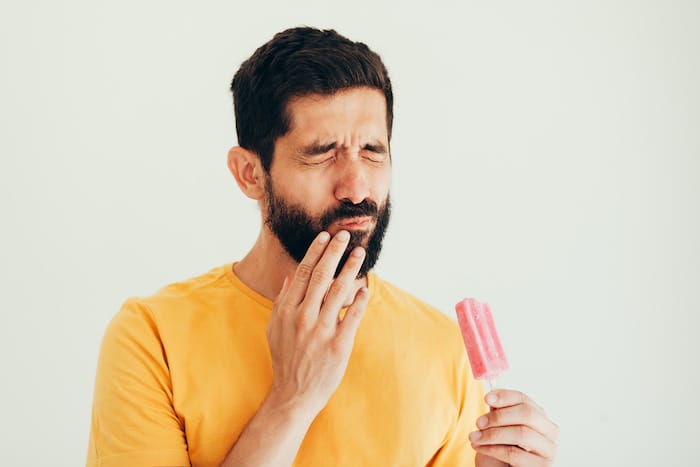Is visiting your dentist twice a year enough? Dentists recommend regular teeth cleaning exams bi-annually. But this would vary depending on your dental health issues. If you have dental problems, it’s better to visit your dentist every three or four months.
As for the regular visit to your dentist, it may only be because cleaning your teeth twice a year is important. This also makes it easier for dentists to monitor your teeth and gum condition and maintain their cleanliness. It’s also a way of preventing oral health problems.
However, there are circumstances when you need to book an appointment with your dentist even if your regular visit is still not due. Here are some signs you need to visit your dentist:
1. You Have Bad Breath
Although there are instances that result in having bad breath, some are due to dental health problems. Bad breath can be due to drinking too much coffee since caffeine can dry your mouth. This is not a problem as you can easily brush your teeth to make the bad smell go away.
As for dental issues, bad breath can also be because of halitosis. It may be due to acid reflux, changes in your usual diet, plaque buildup, and gum diseases. Thus, if you have bad breath even without drinking a coffee, you may be experiencing halitosis.
Thus, you may want to book an appointment with Richmond dental professionals, if you’re in the British Columbia area, to have an immediate solution.
2. You Have Loose Teeth
As an adult, you should by now have strong teeth as you need these in chewing your foods. Having a wiggly or loose tooth can lead to a severe injury. You might end up lying in bed and suffer pain all day.
One reason for having loose teeth is may be due to a car accident or sports accident. If you find yourself in such predicaments, you might not feel any pain in your teeth or gums, but there could be underlying damage in your mouth that may lead to a more severe condition.
As a result, you may develop a localized infection in your mouth. Of course, you’ll never know this until it becomes severe. Thus, you should promptly visit a dentist Richmond BC, when you encounter an accident that may have hit your mouth.
By doing so, your dentist can identify the root of the problem by performing an oral exam and take X-rays. Or they may perform a dental implant: a surgical procedure to fill in the blanks in your mouth.
3. You See White Spots on Your Teeth or Gums
Another cause of infection is the white patches in your mouth. If you have an existing infection, specifically in the root of your tooth, you might not feel any pain.
However, there will be a spot looking like a pimple is visible around your gums. If you see one, don’t pop it, as you may spread the infection around the gums, leading to more implications. Instead, visit your dentist.

4. You Have Sensitive Teeth
Likewise, you should also see your dentist if your teeth are sensitive. This sensitivity is a common sign of tooth decay or cavities.
It first affects your teeth’s surface and eventually penetrates the center of your tooth. This is where you can find the nerves, blood vessels, and connective tissues. At this point, you’ll feel the pain whenever you drink or eat foods that are hot or cold.
5. You Hear Cracking or Crumbling Teeth
Moreover, a crack or crumbling teeth could be a sign of gastroesophageal reflux disease (GERD) or acid reflux. It’s basically damage to your esophagus and is more common in elderlies.
If you notice your grandparents having disintegrating teeth, let them visit a dentist for an immediate check-up and treatment.
6. Your Gums Are Bleeding
Most importantly, don’t ignore bleeding gums. This sign is a major warning for gum disease.
You should see your dentist if you happen to notice blood while brushing your teeth or after gargling. If left untreated, it could lead to plaque and bacteria buildup. Worse, you can lose your teeth if it becomes more severe.
Conclusion
You can prevent dental health issues from worsening by having proper oral hygiene. Brush your teeth at least twice a day for 2 minutes. Then, avoid using a hard-bristled toothbrush so you will not damage your gums. Moreover, don’t forget flossing, as this can clean the particles stuck between your teeth.
Although you can prevent the development of gum diseases and cavities with such hygiene, you should still be wary of the signs above. That way, you can immediately seek your dentist and get the proper treatment for any dental health problem that you can’t treat with brushing or oral hygiene.
Throughout the year, our writers feature fresh, in-depth, and relevant information for our audience of 40,000+ healthcare leaders and professionals. As a healthcare business publication, we cover and cherish our relationship with the entire health care industry including administrators, nurses, physicians, physical therapists, pharmacists, and more. We cover a broad spectrum from hospitals to medical offices to outpatient services to eye surgery centers to university settings. We focus on rehabilitation, nursing homes, home care, hospice as well as men’s health, women’s heath, and pediatrics.








